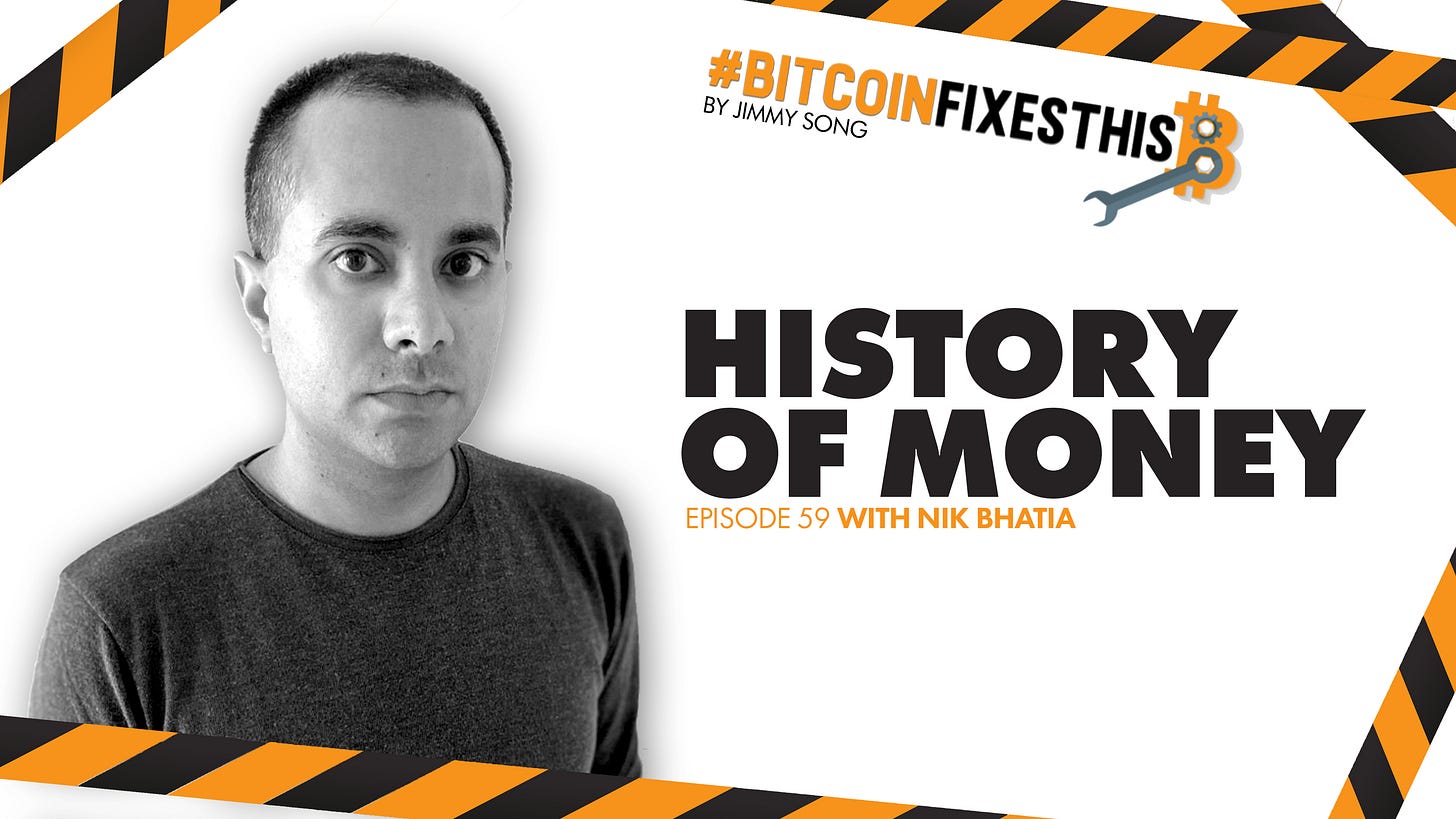People Conform to Systems. Bitcoin Tech Talk #258
I had a really interesting conversation with some people the other day about something I really know very little about: dating apps. Dating apps are a phenomenon that got popular after I got married, so it wasn’t something I paid much attention to. I did hear some complaints of single friends, but I haven’t really paid them much mind, raising kids and all.
What was curious about this conversation was how the young men described it. They saw dating apps as nothing less than the destruction of their generation. It led me to ask about what was going on and they described some startling realities of the apps themselves. The apps essentially incentivize really terrible behavior from both men and women. Flaking, ghosting and cheating are extremely common and the apps are generally not designed for making people happy as much as they are designed to get lots of people spending money on the app.
In other words, the apps have create an ecosystem that incentivize their users to certain behavior. So much so to the point that people see this behavior as normal. I couldn’t help but think of a book I had been reading on this subject: The Technological Society by Jacques Ellul.
The author of the book posits that a lot of technology, or what I would call systems, have rules that are alien to human beings, but are efficient for the system itself. Evaluating hundreds of possible mates in a couple of hours is completely alien to people even 20 years ago, but is very normal in dating apps now, for example. These bring on emerging behaviors that serve to benefit the system rather than the individual, much like how the behavior of people on the dating apps generally don’t benefit them as much as they benefit the apps. The systems then go on to have their own momentum and take advantage of the humans participating. In a sense, humans become enslaved to the system when the system is sold as a service to people.
Of course, dating apps are one example, but there’s plenty more. Think about how we interact with social media or news articles and their ads online. These are entire systems for which we, the human beings that consume this stuff end up conforming our behavior to.
The most pernicious of these systems is the system of Central Banking. It’s a system based on debt and it incentivizes certain behaviors which in turn feeds itself. Debt leads to more demand which leads to more debt. Since the debt comes out of nothing, we see emergent behaviors, like rampant materialism, welfare states, reduced fertility and so on. The systems that we think benefit us are actually the other way around. We are benefiting the systems at our individual (personal) and collective (civilization) expense.
In other words, a lot of technology and systems that we set up end up controlling us instead of the other way around. I suspect that’s what’s going on with the current lockdowns and weirdness around COVID. It’s possible that there’s a nefarious world order being orchestrated by a global cartel of elites. But a more likely explanation is that there’s now a bureaucratic system of incentives which cause the people in it to conform a certain way and end up perpetuating the system itself. A system that produces vaccines will not only continue to produce vaccines, but also justifications for why more vaccines are needed. There is no evil agenda necessary for such systems to continue to do what they’ve done, just momentum.
And momentum is a very hard thing to stop, especially when it’s got a lot of mass. Such systems can only be killed with great effort and hence why these systems die only when they’ve consumed everything they can. For example, hyperinflation is the end game of a central bank system consuming itself. This would be akin to a crash landing, or a quick reduction in velocity.
The other option is to reduce the mass slowly, but this necessarily is a long-term endeavor. Indeed, this is what I believe Bitcoin to be. It’s an alternate system with much better incentives which is just as much a system as others, but with individual freedom, self-sovereignty and low-time preference behavior as the emergent properties. A slow transition would take a long time but be less painful.
Of course, we could have a transition which is a mix of the two. Our current situation really is unprecedented. Regardless, evaluating how this technology changes humanity will be an interesting thing to watch.
Bitcoin
Bitcoin 22.0 was released. This includes I2P support, bech32m support and a bunch of RPC command updates. The I2P support is great as that’s an alternative to TOR and allows for some redundancy in node privacy. This is also the first major release with Taproot support which is only a couple of months away from activating. As more developers contribute, I’m excited that a lot of the cleanup tasks like updating RPC commands are getting done.
Karl-Johan Alm has proposed a different way to update BIPs with BIP extensions. The idea is to have updates to BIPs be separate from their original improvement proposals as many in the past have had substantial updates (HD wallets and Taproot come to mind). Extensions allow older standards to still be documented. AJ Towns has replied that it may be wiser to make clear what BIPs are final versus still in draft.
There’s a new way to transition from BTC to Sats using the satcomma standard. This is a way to help people see both the Bitcoin and Sat value at the same time. So for example, 100k sats would be denoted 0.00,100,000. The commas are meant to help people see the actual sat value more easily. As the original author of BIP176 (Bits denomination), I think this is superior and sats look inevitable, so I would really like to see this standard implemented as a clever transitional step to thinking in terms of sats.
HRF gave 3.75 BTC in grants to various organizations for Bitcoin development. There are 10 different recipients (!) and the grants are focused on privacy. I like how they’re going very broad with their grants and funding developers that may not necessarily be doing flashy things.
Lightning
Michael Rhee has written part 2 of his Lightning Development series. This is a great step-by-step explanation of how he builds a store for selling digital rights to photos. The tutorial makes great use of Lightning Polar and has plenty of code to show exactly what’s going on. I find tutorials like this great as things can be adjusted later to make your own application.
Coindesk Research has published their analysis of the Lightning Network including some good metrics. This is the first time I’ve seen anything from this group, as usually they are known for reporting industry news and not in-depth pieces like this. The report goes over a lot of metrics and their growth with respect to the Lightning Network. I really hope Coindesk invests more in this area as they’ve been more known for their fluffy altcoin coverage than anything in-depth with Bitcoin.
Roy Scheinfeld shows how one family is getting closer with the use of Lightning. Matthew Haywood has been around the Bitcoin space and has a tech background. The story in there shows just how useful Bitcoin can be for allowances, microtransactions and content payment instead of ads. I think a Lightning-enabled world will look a lot more like this and one that will be far less scary than a trusted third-party one that dominates now.
Economics, Engineering, Etc.
Alex Gladstein has another great read on El Salvador. This is on the heels of El Salvador declaring Bitcoin exempt from capital gains taxes. Gladstein writes a very balanced look at what’s going on in El Salvador, particularly the contrast between the transparency of Bitcoin and the opaque way in which the El Salvador government has been developing everything. The whole thing is a fantastic portrait of what’s actually happening on the ground while giving geo-political context to what’s going on.
Marty Bent destroys the ill-informed NY Times opinion. As he points out, the confidence with which the NY Times editor presented his case and the accuracy of the article itself were completely out of whack. There’s definitely a concerted attack on Bitcoin from mainstream media these days. If I were a conspiracy theorist, I would say this is coordinated as a way to discredit Bitcoin with the elites, but as I mentioned above, this is probably a knee jerk reaction from the media industrial complex.
Nic Carter shows why Ethereum is inherently political. Nic goes through the latest shenanigans on Ethereum, where they are clearly choosing winners and losers on their platform, as centralized entities have a tendency to do. This is the problem with centralization. Because power is concentrated, everything becomes way more political and the monetary rewards become the bounty that people go after. I suspect that it’s not necessarily a loss of trust that will doom these networks, but a loss of power by the losers of the inevitable power struggles which will whittle down this and other altcoin networks.
Coin Center sheds light on the infrastructure bill’s clause 6050I. This is different than the broker clause which got the community up in an uproar. Essentially, this is an unworkable mess as it requires the deputized surveillance of digital assets, even when there’s no third party! This is clear evidence that Congress simply doesn’t understand what Bitcoin is. That said, I suspect this could be enforced on altcoin networks that have centralization, especially for airdrops and such. I hope Congress learns better what Bitcoin is.
Here is a great article showing how Bitcoin helps African entrepreneurs. From places as diverse as Nigeria and Kenya, Bitcoin is helping with international settlement in a very local way. This article shows not so much the effect of Bitcoin, but rather, the dominance of the central banks in international trade. It’s obvious to me that there’s a lot of value being unlocked in monetarily oppressed places like Africa with Bitcoin.
Quick Hits
Stablecoins and altcoins may be getting some serious regulation soon from the SEC.
Coinbase signs a deal with US Dept. of Homeland Security.
OK Boomer. Well, maybe not all boomers.
Another week, another altcoin shows just how centralized it is.
Events
I will be in Miami for the Oslo Freedom Forum October 3-6, Texas Blockchain Summit October 8 and in Atlanta for TabConf on November 4-5.
The Programming Blockchain seminar is in Atlanta, GA on November 2-3. This is a 2-day seminar for programmers to learn about Bitcoin. You can apply here. I also have a few scholarships available for those that can’t afford it.
Podcasts, Etc.
On this week’s Bitcoin Fixes This, I talked to Nik Bhatia about the History of Money. He shed light on how money became so layered with trust and how that trust got abused.
I read through last week’s newsletter which you can find here.
I was on Tone’s show to talk about Core 22.0, the Solana restart and more. I talked about the moral case for Bitcoin with Capital Gains Tax Solutions, marketing with Naked Marketing and about the new book on Courage Cast:
Unchained Capital is a sponsor of this newsletter. I am an advisor to a company that’s enhancing security for Bitcoin holders. If you need multisig, collaborative custody or bitcoin native financial services, learn more here.
Fiat delenda est.











